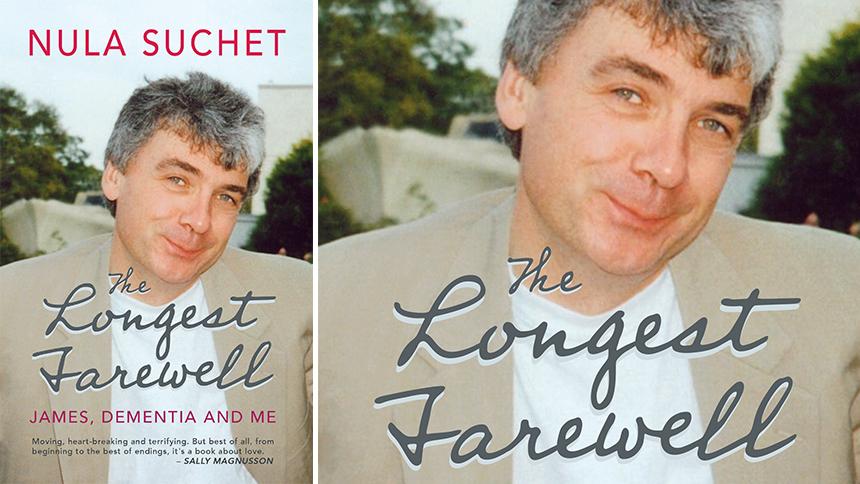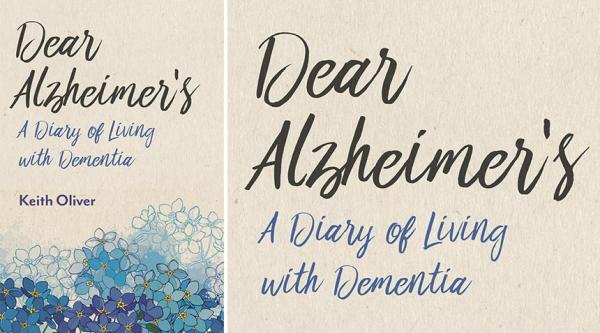Book group: The longest farewell by Nula Suchet
Readers share their views about a real-life story of losing a partner to dementia, but also of finding unexpected love through the experience.
Our book this issue tells the incredible story of how its author – then Nula Black – not only cared for her late husband James, who had frontotemporal dementia, but also how she met John Suchet, who she would eventually marry. They met because John’s wife Bonnie, who also had dementia, lived in the same care home as James.
Caroline Branney, who manages our Dementia Knowledge Centre, says, ‘This is a moving, poignant description of James’s mental and physical deterioration, and the effect it has on their lives and those around them.
‘Fortunately, the ending of this true story is unexpectedly bittersweet, though overall I found the book very heart-rending.’

Joanne Gaskell in South Yorkshire agrees, ‘I must say, it brought back some sad memories for me. My mum was diagnosed aged 52 and passed away at 57. I can 100% understand what Nula and John both went through for many years – such a cruel disease, with no treatment or cure.
‘It is so frustrating for the families, you all become the victim of dementia. I’m glad Nula and John both found happiness again. An excellent but sad book.’
‘I can 100% understand what Nula and John both went through for many years,’ says Joanne.
Gillian Andrew, a reader in Greater London, says, ‘Despite its stark frankness about her late husband’s dementia, I found it compulsive reading.
‘I imagine people with no experience of dementia would be shocked by some episodes. Those of us who have had our own experience – in my case with my mother – can relate all too well to many of them.
‘I imagine people with no experience of dementia would be shocked by some episodes,’ says Gillian.
‘The saddest comment I heard my father make was that my mother was no longer the person he married, so one particularly poignant passage for me was, “it has taken away my life... and so it can claim another victim – two for the price of one.”’
Difficult diagnosis
While there is much about the story that may be challenging to read, it’s familiarity could also be a source of comfort to some.
‘Nula started writing about their experience when, after five years of caring for him at home, James went to live in a care home,’ says Caroline. ‘She says she was later able to organise her account and temper it with the benefit of hindsight.
‘I was particularly struck by the length of time it took for James to receive a dementia diagnosis – explained in the book by a combination of denial and also lack of awareness, even in the medical profession, of younger people with dementia.’
‘My experience was similar to Nula’s and I found it strangely comforting that she experienced the same feelings as I did on my journey,’ says Gail.
Gail Digby, another reader in South Yorkshire, says, ‘I read the book with great interest, as my husband had frontotemporal dementia. This is rarely written about, and indeed is less well known and given much less attention than other types of dementia.
‘My husband was diagnosed in 2013 and died in 2018. My experience was similar to Nula’s and I found it strangely comforting that she experienced the same feelings as I did on my journey.
‘Music was of great importance to my husband, the difference being that he sang, very loudly for very long periods of time, and usually the same refrain over and over again.’
Gradual acceptance
The journey described in Nula’s book takes readers through a difficult process of acceptance, and to an end of life experience that is far from ideal.
‘Once James is diagnosed, Nula is completely stunned and feels guilty that she has been frustrated by her husband’s behaviour and had her “head in the sand” about the changes, which she learns can never be reversed,’ says Caroline.
‘Nula’s description of how the disease progresses is harrowing,’ says Caroline.
‘Gradually she comes to accept that their relationship is never going to be quite the same. Nula takes James to all his favourite places – out fishing, to Paris and the opera – but eventually they stop going out, as it is no fun anymore.
‘Nula’s description of how the disease progresses is harrowing. She says she feels “utterly defeated” once she has accepted that James needs full-time professional care.’
‘I strongly share Nula’s views about end of life care, or lack of it,’ says Gillian, ‘that, “Never in my most awful nightmares could I have imagined such a terrible ending to a human life.” A fitting tribute to her courage in sharing such personal experiences and feelings would be if the medical profession found a way to address this.’
‘I am awaiting the film version and will recommend the book to the members of my frontotemporal dementia support group,’ says Gail.
Gail says, ‘The main difference I found between Nula and myself was in care at the end of life. Her experience was quite appalling, whereas the care we received was truly amazing.
‘Interestingly, I experienced the sense of my husband becoming himself again just before he died. It was as if he was “back” – his eyes were seeing me and he understood all that I had been saying to him, though he couldn't talk or communicate at all. I treasure that time.’
She adds, ‘I am awaiting the film version and will recommend the book to the members of my frontotemporal dementia support group, which functions in Sheffield and whose support I have appreciated over the years.’
The last word goes to Gillian, who says, ‘I wish Nula and John every happiness in the new chapter in their lives.’




